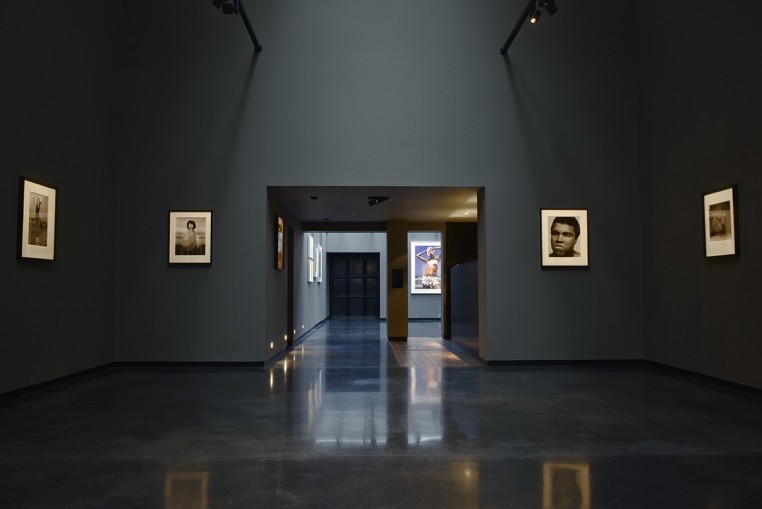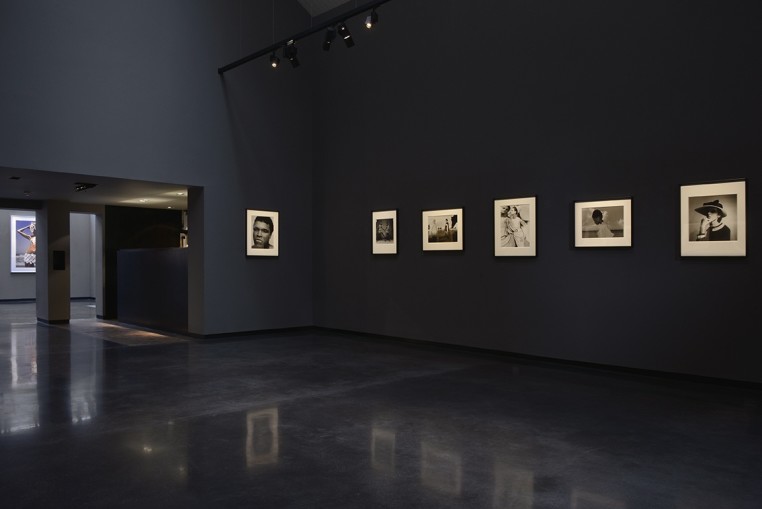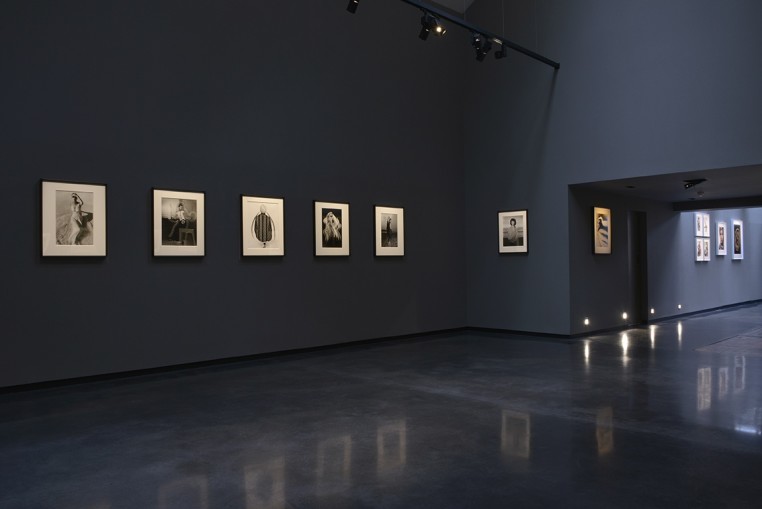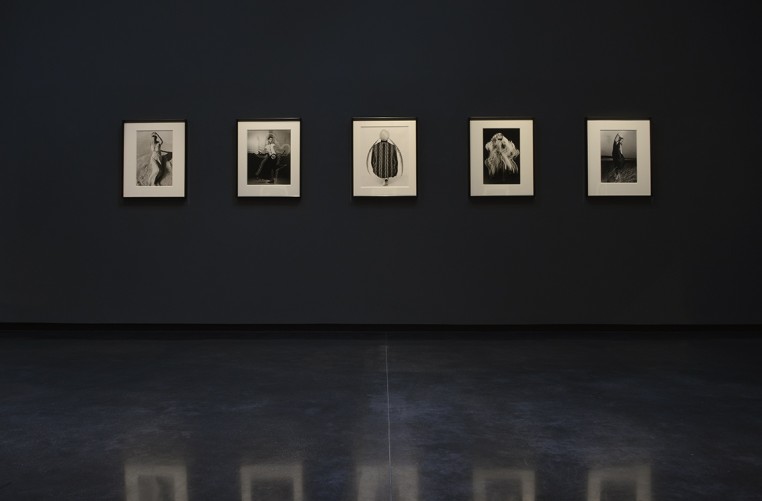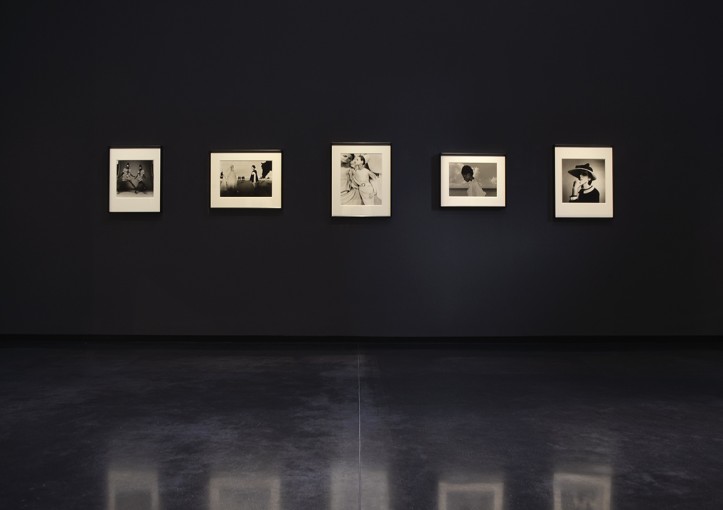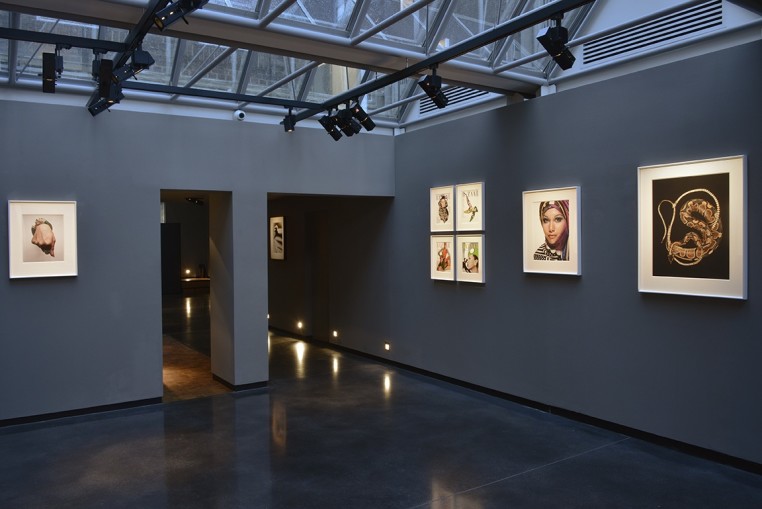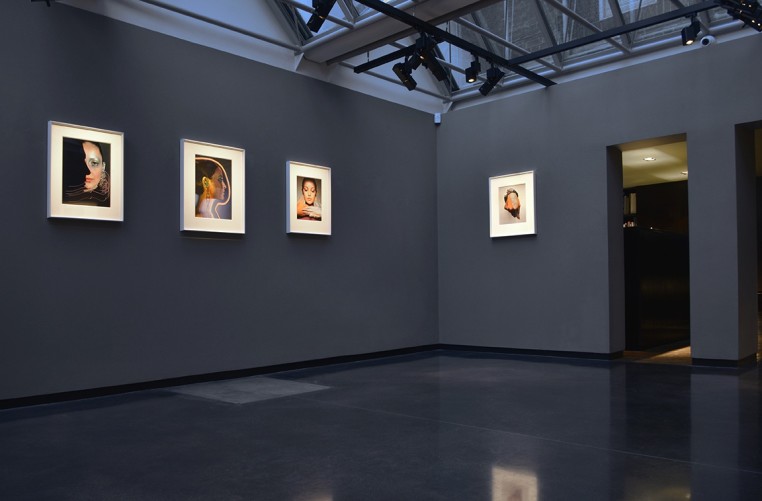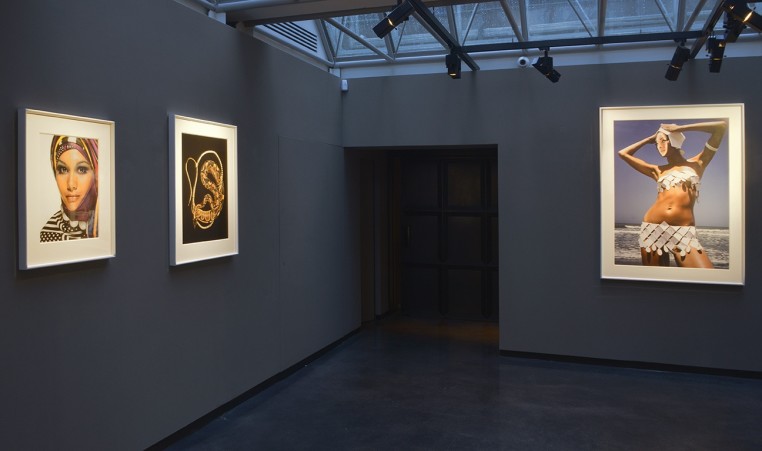Hamiltons presented the work of esteemed photographer Hiro, selected from his diverse and dynamic oeuvre. The majority of prints in this exhibition had not been previously editioned, so had never been publicly seen outside of the magazine pages until now. The exhibition consisted of two parts: his rarely exhibited black and white photographs in the front gallery, and his vibrant colour work in the second gallery.
Known for the originality of his photographs, Hiro’s photographic career began at Harper’s Bazaar in New York as a fashion, still-life and portrait photographer. Shortly after arriving in America from Japan in 1954, Hiro landed an apprenticeship in Richard Avedon’s studio. Avedon soon sent Hiro to legendary art director Alexey Brodovitch after he proved too talented not to work independently, and within a few years Hiro had risen to extraordinary fashion photography heights. Hiro began working under Brodovitch in 1956 and in 1963 he became the only photographer under contract at Harper’s Bazaar, a position he kept for the next ten years. Now in his 80’s, although no longer under contract, Hiro continues to take assignments with the magazine. Hiro has lived up to Brodovitch’s dictum, ‘If you look in your camera and see something you’ve seen before, don’t click the shutter.’ In January 1982 American Photographer magazine devoted their entire issue to Hiro, asking the question “Is this Man America’s Greatest Photographer?” Richard Avedon described Hiro as ‘a visitor all his life’, enabling Hiro, neither completely Eastern or Western to document both cultures in his work with a perception that only comes from a certain detachment.
Hiro’s work is characterised by surprises, abnormalities, unusual lighting, Surrealism, the unreal and an astounding and constant vision. Hiro sees beauty in the extraordinary, and this is evident from the selection in the exhibition. Part of Hiro’s genius lies in his ability to transform ‘the most mundane objects or delicate features... A toenail, the pupil of an eye, a mouth or a light-switch are seen with the same concentration. Concentration is Hiro’s most obvious quality. When he takes the whole theater of fashion to the beach, he returns with a metaphysical contemplation.’ (Mark Holborn) To look at a photograph of Hiro’s is to come face to face with a picture rife with unusual lighting effects, surprising angles, juxtaposing elements and bold colours.
Hiro’s method is punctuated by his preparation and unrelenting precision. His exactitude is not, however, a hindrance to his creativity nor an unnecessary obsession, but rather the means to his creativity and innovation. Hiro’s assistants always pass the camera to his left hand when he is photographing. This meticulousness is all part of Hiro’s ritual of focusing and ‘intensifying the gaze’. His preparation is second to none; the research conducted for a fashion shoot is worthy of ‘an intelligence operation or a social science exercise. He is said to change in the studio from the affable figure to the rigorous disciplinarian.’
Hiro’s work is published in three monographs and is held in the permanent collections of the Museum of Fine Arts, Boston, George Eastman House, New York, the National Portrait Gallery, Washington, DC, Victoria and Albert Museum, London, Musee Européenne de la Photographie, Paris, The J. Paul Getty Museum, LA, Tokyo Metropolitan Museum of Photography and Kobe Fashion Museum, Japan, amongst others.

